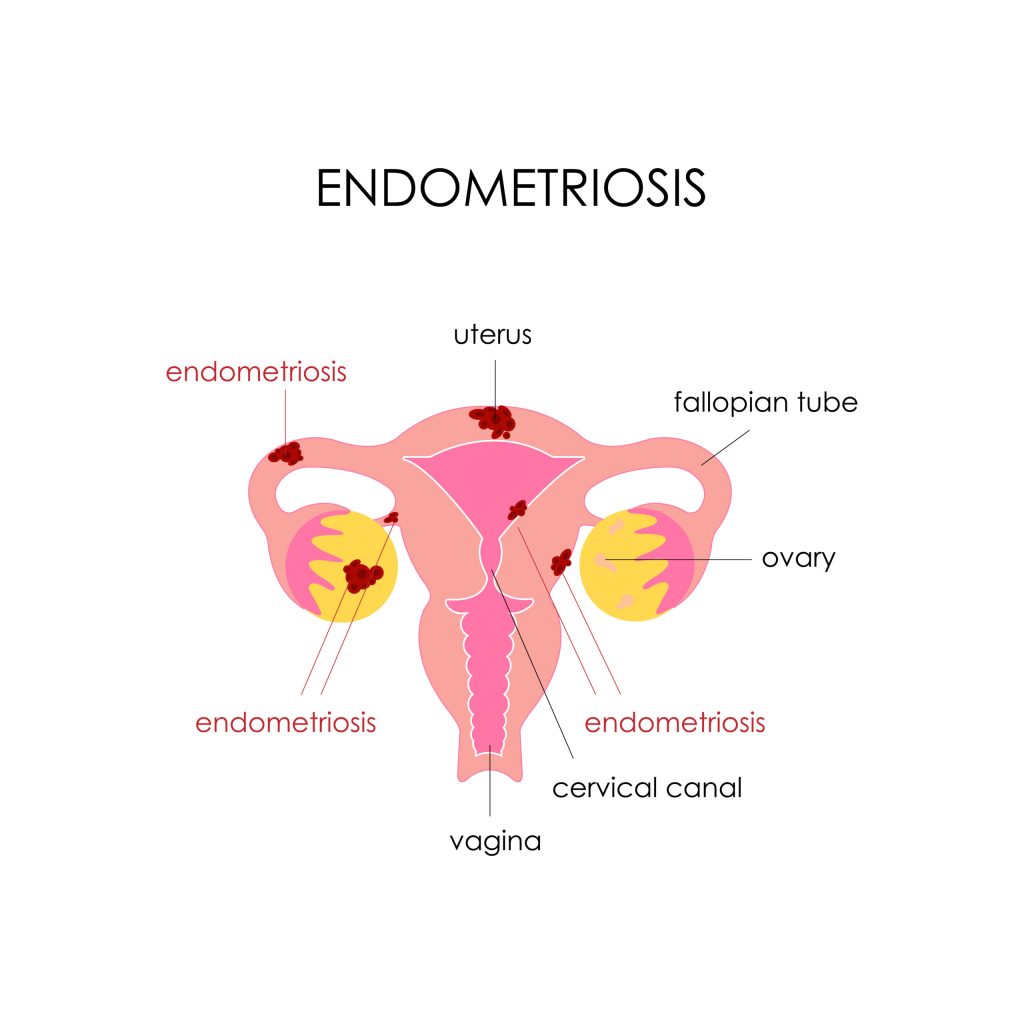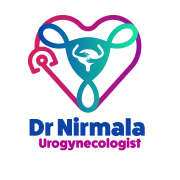Endometriosis

Endometriosis is a chronic condition where tissue similar to the lining of the uterus (endometrium) grows outside the uterus, commonly on the ovaries, fallopian tubes, and pelvic organs. This condition affects millions of women worldwide and can cause significant pain and infertility. Understanding the causes, symptoms, and available treatments is essential for managing endometriosis effectively.
Causes of Endometriosis: The exact cause of endometriosis is not fully understood, but several factors may contribute to its development, including:
- Retrograde menstruation: Backflow of menstrual blood into the pelvic cavity through the fallopian tubes.
- Hormonal imbalances: Fluctuations in estrogen levels may promote the growth of endometrial tissue outside the uterus.
- Immune system dysfunction: Issues with the immune system may prevent the body from recognizing and eliminating misplaced endometrial cells.
- Genetic factors: Endometriosis tends to run in families, suggesting a genetic predisposition to the condition.
Symptoms of Endometriosis: Endometriosis can cause a variety of symptoms, which may vary in severity from woman to woman. Common symptoms include:
- Pelvic pain: Chronic pelvic pain, often worsening during menstruation, intercourse, or bowel movements.
- Menstrual irregularities: Heavy or irregular menstrual periods, sometimes accompanied by clotting.
- Painful intercourse: Discomfort or pain during sexual intercourse, often located deep within the pelvis.
- Infertility: Endometriosis can affect fertility by causing pelvic adhesions or scarring that obstruct the fallopian tubes or interfere with ovulation.
- Gastrointestinal symptoms: Digestive issues such as diarrhea, constipation, bloating, or nausea, especially during menstruation.
Common Treatments for Endometriosis:
Pain Medication: Over-the-counter pain relievers such as nonsteroidal anti-inflammatory drugs (NSAIDs) like ibuprofen or naproxen sodium can help alleviate pelvic pain and discomfort associated with endometriosis.
Hormonal Therapy: Hormonal treatments aim to reduce or eliminate menstrual periods, which can help alleviate symptoms and slow the growth of endometrial tissue. Common hormonal therapies include:
- Birth control pills: Oral contraceptives containing estrogen and progestin can regulate the menstrual cycle and reduce symptoms.
- Gonadotropin-releasing hormone (GnRH) agonists and antagonists: These medications work by suppressing ovarian function and reducing estrogen levels, which can shrink endometriotic lesions and alleviate symptoms.
- Progestin therapy: Progestin-only contraceptives, such as the contraceptive implant or intrauterine device (IUD), can help control menstrual bleeding and reduce pain associated with endometriosis.
Surgery: Surgical interventions may be necessary to remove endometriotic implants, scar tissue, or cysts that have formed as a result of endometriosis. Options include laparoscopic surgery (minimally invasive) or laparotomy (open abdominal surgery), depending on the severity of the condition.
Fertility Treatments: For women experiencing infertility due to endometriosis, assisted reproductive technologies such as in vitro fertilization (IVF) may be recommended to help achieve pregnancy.
Lifestyle Modifications: Making lifestyle changes such as maintaining a healthy diet, regular exercise, stress management techniques, and adequate sleep can help alleviate symptoms and improve overall well-being for women with endometriosis.


